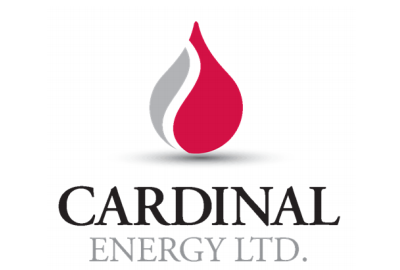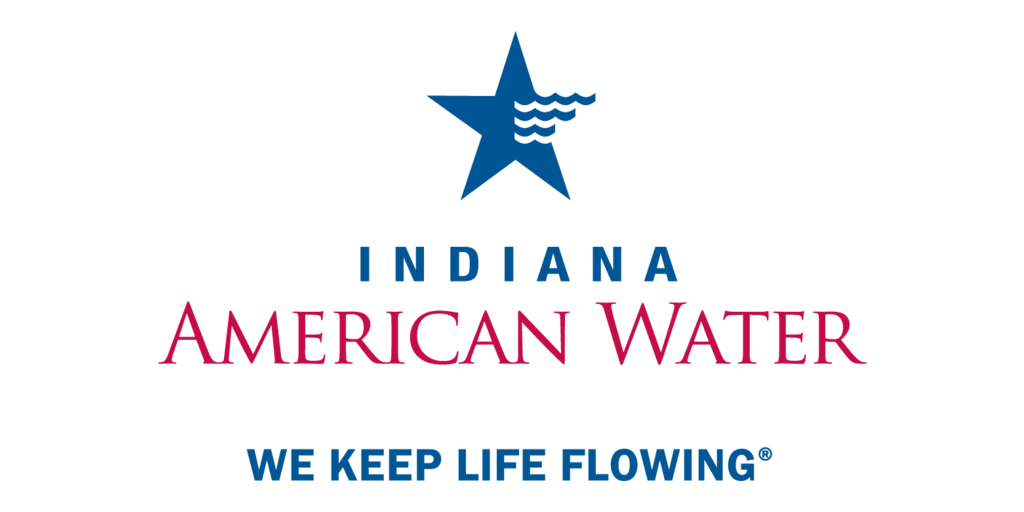The Australian resources industry has had a bumper year. As the sector gears up for 2024, Australian Mining reflects on positive changes made in five key areas during 2023.
Throughout 2023, mining companies and governments introduced new legislation, technology, and safety measures to work towards implementing greater environmental, social and governance (ESG) efforts.
This trend was especially true in Australia, and is expected to continue into the new year.
According to business management consultants Ernst & Young, ESG will remain the greatest business risk and opportunity facing the global mining and metals sector in 2024 for the third year in a row.
Australian Mining takes a look at how the Australian mining sector has used 2023 to prepare itself to meet greater ESG transparency, among other trends.
Critical minerals
The critical minerals boom reached new heights this year, most notably through the release of the Federal Government’s Critical Minerals Strategy.
Introduced in June, the Critical Minerals Strategy aims to grow Australia’s critical minerals wealth by providing a framework that the Federal Government will use to guide future policy decisions.
“The new Critical Minerals Strategy outlines the enormous opportunity to develop the sector and new downstream industries which will support Australia’s economy and global efforts to lower emissions for decades to come,” Federal Resources Minister Madeleine King said.
“While the potential is great, so too are the challenges. The strategy makes it clear our natural minerals endowment provides a foot in the door, but we must do more to create Australian jobs and capitalise on this unique opportunity.”
To support the strategy, Australia’s critical minerals list is expected to expand in the new year.
With minerals such as lithium, tungsten and vanadium already on the list, King said minerals like bauxite, iron ore, coking coal, copper and nickel are Australian commodities that are crucial for the global energy transition. However, she didn’t confirm that these commodities would be added to the list.
“Our critical minerals list is different to some other nations. Other nations craft theirs on what they have, what’s scarce and what they can’t get, whereas we’ve got most of it. So it’s crafted on another basis of what is of geostrategic importance for us and our neighbours,” King said at the Australian Financial Review Energy and Climate Summit.
“We also have to consider our region and our partners because they’re an important part of our prosperity. That’s always going to figure in it.”
Legislation
While industrial relations reforms such as the ‘same job, same pay’ and ‘closing loopholes’ bills made a splash during 2023 – and will most likely continue to do so in 2024 – the Aboriginal Cultural Heritage Act 2021 reverting to the Aboriginal Heritage Act 1972 had a strong effect on the Western Australian mining sector.
The catalyst for the Bill change was the May 2020 Juukan Gorge incident, when Rio Tinto blasted two sacred rock shelters while exploring for iron ore.
To prevent similar incidents from happening in the future, the WA Government introduced the Aboriginal Cultural Heritage Act 2021 in December 2021. The Bill came into effect in July 2023.
Under the legislation, WA landowners were required to check if cultural heritage sites were present on the land before undertaking anything which may compromise the sites.
However, following public workshops, education sessions, and consultation with key stakeholders, the WA Government decided to revert back to the Aboriginal Heritage Act 1972, with some key amendments.
The restored legislation’s amendments included the newly formed Aboriginal Cultural Heritage Council taking on the role of the committee that was established under the 1972 Act to make ministerial recommendations.
Proponents and native title parties were also given the same right of review for Section 18 decisions, with clear timelines and an ability for the WA Premier to call-in a decision of ‘state significance’ to act in the interests of all WA residents.
Section 18 refers to the part of the Act that states the minister must provide approval for every action undertaken at the site.
When a Section 18 has been approved, it is a requirement for the owner to notify the minister of any new information about an Aboriginal site.
The Juukan Gorge tragedy was a global embarrassment, but our response was wrong, we took it too far, unintentionally causing stress, confusion and division in our community,” WA Premier Roger Cook said in August.
“The complicated regulations, the burden on landowners and the poor rollout of the new laws have been unworkable for all members of our community – and for that, I am sorry.
“The original intent of the legislative change nearly two years ago, was to prevent another Juukan Gorge – and (the WA) Government will deliver on that commitment.”
In September 2023, the amended legislation opened for public consultation.
M&A
This year has seen an emerging pattern of mergers and acquisitions (M&A) as ASX-listed mining companies fought to expand their portfolios.
Perhaps the two biggest mining acquisitions seen in 2023 were BHP’s takeover of OZ Minerals in May for $9.63 billion, and Newmont’s acquisition of Newcrest in November for $26.2 billion.
OZ Minerals and Newcrest are both Australian gold and copper mining companies that were taken over by major global miners. Copper notably has a variety of end uses in a green economy, whether it be through electricity distribution, electrical equipment and devices, industrial machinery, wind turbines, solar panels and, of course, powering electric vehicles.
BHP chief executive officer (CEO) Mike Henry said the takeover of OZ Minerals would provide growth opportunities around the world.
“This acquisition strengthens BHP’s portfolio in copper and nickel and is in line with our strategy to meet increasing demand for the critical minerals needed for electric vehicles, wind turbines and solar panels to support the energy transition,” he said.
“Combining our two organisations will provide options for growth, bring new talent and innovation to unlock these resources in a sustainable way.”
Newmont CEO Tom Palmer echoed similar sentiments regarding Newmont’s acquisition of Newcrest.
“This milestone represents a pivotal and historic moment in our strategy to create the world’s premier gold and copper company by consolidating Tier 1 assets in the world’s most favourable mining jurisdictions,” he said.
“Once complete, our combined business will feature ten, Tier 1 operations supporting decades of safe, profitable, and responsible gold and copper production, with best-in-class sustainability performance.”
Other noteworthy transactions that took place in 2023 included Sibanye-Stillwater acquiring New Century Resources for $120 million and Mineral Resources (MinRes) acquiring Norwest Energy for $497 million.
This year also saw Wyloo Metals acquire Mincor Resources for $760 million, with Ring of Fire Metals, Wyloo Metals and Mincor now unified under the brand name Wyloo.
Technology and innovation
Many new innovations were created in 2023 to assist mining companies in meeting global climate goals, while simultaneously reducing maintenance and production costs and increasing workplace safety, productivity and efficiency.
A key example of this was MinRes’ agreement with Hexagon. In July, MinRes announced it would purchase a fleet of 120 fully autonomous road trains equipped with an autonomous haulage solution provided by Hexagon.
The world’s first fully autonomous road trains were designed and developed for MinRes’ Onslow iron project in WA.
The trains are expected to help in removing the risk of driver fatigue, increasing fleet availability, lowering operating costs and reducing fuel use and emissions.
“The ability to see a road train that’s pulling over 300 tonnes, three trailers over a 120km road, and to be able to take that from a mine site to port without having to put in any infrastructure like conveyors or rail … is exciting,” Hexagon mining division chief technology officer Robert Daw told Australian Mining earlier this year.
“All of these solutions and expertise come together to create that world-first. We’re not aware of anywhere else that has these types of road trains operating 24–7, pulling this quantity of material on a 365-day basis.
“Hexagon couldn’t have achieved this successful milestone without MinRes and vice versa.”
Safety
As the end of 2023 approaches, so too has the deadline for mining companies to comply to the Respect at Work Act.
The Respect at Work Act was introduced in December 2022, and required employers to adopt proactive measures to prevent sexual harassment, sex-based discrimination and related victimisation. This covers not only the actions and behaviour of the employer, but also their employees and others who work for them.
Under previous laws, employers could be held vicariously liable for sexual harassment and discrimination where they failed to make all reasonable steps to prevent the behaviour from occurring.
While this is still the case, the new legislation enforces a positive duty on employers to take reasonable steps in eliminating sex-related discriminatory behaviours in the workplace.
This means employers need to proactively take action to prevent unacceptable behaviour relating to sexual harassment in their workplace, regardless of whether a complaint has been made.
As part of the changes, the Australian Human Rights Commission (AHRC) has been empowered with the ability to inquire into, and report on, issues of systemic unlawful discrimination or suspected systemic unlawful discrimination.
Owing to the gravity of the changes, employers have been given a one-year grace period to demonstrate this positive duty of care. That door closes on December 13 this year, at which time the AHRC will commence its new responsibilities.
“Australia must take active steps to prevent unlawful workplace behaviour before it even begins,” AHRC president Rosalind Croucher said in August.
“With one in three Australians reporting they’ve been sexually harassed at work over the last five years, leaders of organisations and businesses play a pivotal role in setting the benchmark for best practice in preventing harassment and discrimination in Australian workplaces.
“This is a significant moment for leadership. Implementing the positive duty is an opportunity for Australia to change the places in which we work – to be safe, inclusive, gender-equal, and free from sexual harassment and discrimination.”
As the mining industry gears up for another big year in 2024, the progress of 2023 shows the sector is atoning for its shortcomings and growing as a result.
This feature appeared in the December 2023 issue of Australian Mining.




